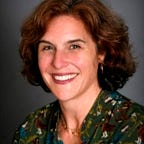Myanmar’s Election Was a Global Story. Beyond the Vote Count, Local Reporters Uncover Deeper Stories.
One could almost hear the global exhale of relief in the wake of the recent elections in Myanmar. The turnout was huge. The voter rolls, which were troubled and incomplete in 2012, were updated and, while far from perfect, were closer to accurate. People all over the country voted in what was by most measures a fair electoral process. Aung San Suu Kyi’s party, the NLD, won by a wide margin and, so far, the incumbent military government, the UNDP, has acquiesced gracefully.
Each of these steps represents a small miracle in a country that has relatively recently emerged from 50 years as one of the most closed and repressive nations on earth.
But as any observer of Myanmar knows, many challenges remain.
High on the list is ongoing inter-ethnic tension. Just before and after the elections, Maung Zaw, a reporter for the Myanmar Times and a participant in Internews’s Election Reporting News Lab, broke an important story that highlights this issue:
Muslims May Have Feared Voting
The week before the election, Maung Zaw and his colleagues from the News Lab traveled to Meiktila, an area in the Mandalay region that was ravaged by inter-ethnic violence in 2013. 40 Muslims were killed and a reported 9,000 displaced in the wake of a successful victory for the NLD, the opposition party. The violence was purportedly fomented by the radical group, “969,” led by Buddhist monks who preach Muslim intolerance and urge boycotts of Muslim businesses.
The reporters met with the Interfaith Friendship Group in Meiktila township to discuss voter education awareness among different religious communities. It quickly became clear that there were issues for the Muslim community that went beyond awareness of the voting process.
As Maung Zaw reported in the Myanmar Times, many Muslims were afraid to back the NLD, the party of Aung San Suu Kyi. As U San Win Shein, associate secretary for the interfaith group, told the reporters, “Most Muslims are afraid of further religious conflicts if they vote for the NLD.”
He went on to explain that 15,000 Muslims were registered, but that many were living in refugee camps and were unsure about how to look up their registration. He estimated that one third of those registered were afraid to vote.
Security was naturally a top concern for Muslims in the area. As one Muslim resident interviewed by Maung Zaw said, “The people who attacked Muslims in 2013 asked their victims if they were NLD supporters. That’s why I’m afraid of it happening again if the NLD wins.”
And in fact, on November 8th, the township of Meiktila voted decisively in favor of the ruling party, bucking the overwhelming national support for the NLD.
Follow up
It needed explanation — in a region that strongly supported the NLD in 2012, the township of Meiktila voted overwhelmingly for a party that has links to anti-Muslim group.
Maung Zaw followed up with a story on November 12th, again in the Myanmar Times. What he found was a series of interlocking threads.
The NLD, though not aligned with anti-Muslim groups, has been relatively silent in on the issue of Muslim discrimination. The party did not field a single Muslim candidate in the recent elections. In the end, the weakness of the NLD on Muslim issues combined with the threat of greater violence seems to have won out.
As U Ba Kyu, a member of the Muslim community in Meiktila, told Maung Zaw, “We are concerned for our safety and worried that a new religious conflict will occur. Just look at most of us. We are all scared even by the sound of a loud crash.”
Maung Zaw and the fellow journalists that participated in the News Lab are in the vanguard of independent media in Myanmar. The News Lab included 15 participants drawn from six regions across the country, encouraging the development of peer-to-peer relationships with reporters from different ethnicities and locations. Participants developed stories in a real-time, newsroom setting and filed them back to their home publications. In this case, the focus was on the election system, conflict sensitive reporting, and ethics, to help the journalists cover all aspects of the election, from observation and monitoring to how to interview candidates and MPs.
Fair and balanced media coverage, such as the work Maung Zaw did in Meiktila, is critical in a country where many people in the rural areas do not know how to vote or understand the parliamentary system. Voter education and oversight of the still contentious voter lists is critical. According to News Lab director, Myint Kaw, 5% to 10% of the population is still not included in the voter lists. Others, such as migrant workers, are on the lists but are not living where they are listed and therefore cannot vote.
It will take time for these issues to revolve. Independent, unbiased reporting that educates and illuminates remains too rare in Myanmar, where state-owned media still dominate and much ethnic media offer more opinion than news. In this mix, programs such as Internews’ are critical. Journalists need to understand the election system and its rules and regulations. They need to be trained on conflict sensitive reporting and ethics. And perhaps most critically, as the new Parliament takes its seats next April, they will need to forge new relationships with the MPs so they can report accurately on the fast moving political and economic environment of the new Myanmar.
Internews currently runs a range of training and production programs to support independent media in Myanmar. Its flagship program is the News Lab program that draws working journalists from diverse backgrounds together in professional newsroom conditions. This program was extended with the Election Reporting News Lab in Mandalay. Participants from different media outlets produced quality reporting on key issues such as voter education, rules and regulations and ethics of reporting on elections.
